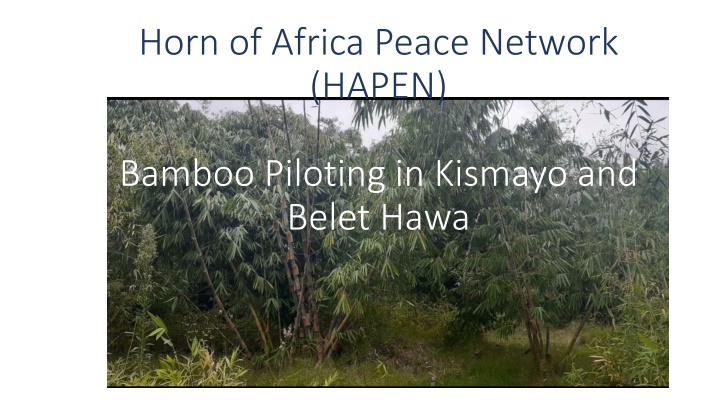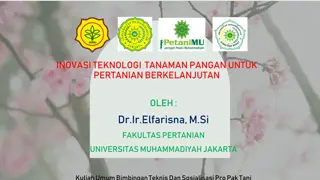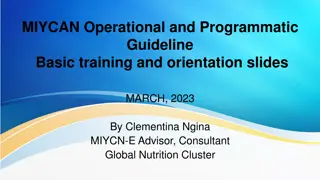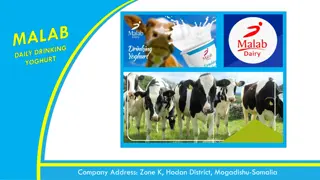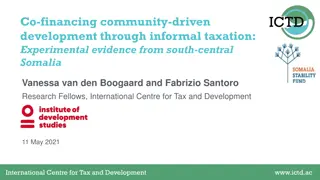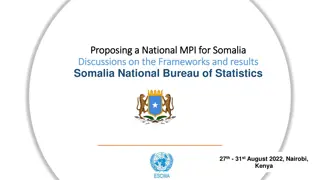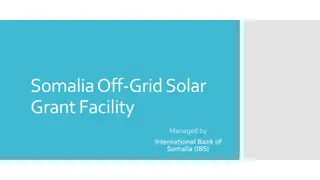Harnessing Bamboo for Sustainable Agriculture in Somalia
The Horn of Africa Peace Network (HAPEN) is piloting bamboo cultivation in Kismayo and Belet Hawa to combat desertification and promote sustainable agriculture. Bamboo, a versatile plant, offers a renewable resource that can thrive in various climates, including the arid regions of Somalia. The initiative aims to sensitize farmers, introduce priority bamboo species, and mobilize resources to expand bamboo cultivation for long-term benefits.
Download Presentation

Please find below an Image/Link to download the presentation.
The content on the website is provided AS IS for your information and personal use only. It may not be sold, licensed, or shared on other websites without obtaining consent from the author.If you encounter any issues during the download, it is possible that the publisher has removed the file from their server.
You are allowed to download the files provided on this website for personal or commercial use, subject to the condition that they are used lawfully. All files are the property of their respective owners.
The content on the website is provided AS IS for your information and personal use only. It may not be sold, licensed, or shared on other websites without obtaining consent from the author.
E N D
Presentation Transcript
Horn of Africa Peace Network (HAPEN) Bamboo Piloting in Kismayo and Belet Hawa
About Bamboo The term bamboo refers to a group of over 1250 species of grass varying from small to giant. Bamboo - nicknamed the wonder plant - is the strongest and fastest growing woody plant on earth Bamboo is an alternative to traditional timber as a renewable resource The highly versatile giant grass can grow in almost any kind of climate and thrive in the poorest of soils. Bamboo can be harvested as a perennial crop, without deforestation, three to five years after initial planting. It can be sustainably harvested for well over 40 years. Once it starts growing, bamboo remains rooted in the soil, producing new shoots each year. This helps secure the soil. In Somalia, Bamboo has the potential to control desertification. It can be grown along the rivers banks. The area under growth is not recorded.
Priority Bamboo Species International Network of Bamboo and Rattan (INBAR) and UNEP (2003) recommended 38 priority bamboos of economic importance. Among the 38, the following species are available in Kenya and have been found to do well in hot areas. Dendrocalamus membranaceus cv. Grandis Dendrocalamus maximuslamina Dendrocalamus giganteus Dendrocalamus stictus Dendrocalamus asper Dendrocalamus barbatus
Proposed Piloting Sites Kismayo oYontoy oGobwe Belet Hawa oMalkariyey farm
Roll out plan Have already sensitized farmers resulting in their readiness to plant bamboo on their farms Start with about three varieties by the end of this month then narrow down to the best performing Encourage more farmers to plant and grow the better performing variety Mobilize resources to expand and popularize bamboo based on performance and benefits
